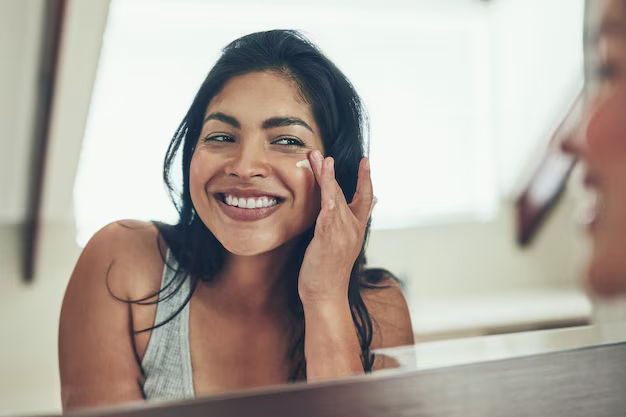Effective Ways to Manage and Treat Rosacea
If you’ve ever experienced persistent redness on your cheeks and nose, you might be dealing with rosacea. This chronic skin condition doesn’t just affect your skin; it can impact your self-esteem and confidence. Rosacea is more common than you might think, but understanding and managing it is within your reach. So, what exactly can be done to treat rosacea effectively? Let’s explore a variety of solutions that can help mitigate its symptoms and enhance quality of life.
Understanding Rosacea
Before diving into treatment options, let's explore what rosacea actually is. Rosacea is a chronic inflammatory condition that primarily affects the face. While its exact causes are not fully understood, a mix of hereditary and environmental factors can trigger it. It often begins with facial flushing and progresses to persistent redness, visible blood vessels, and, in some cases, acne-like breakouts.
Common Triggers
Understanding triggers is key to managing rosacea. Common triggers include:
- Sun exposure: Ultraviolet rays are one of the primary offenders.
- Stress: Emotional stress can exacerbate symptoms.
- Spicy foods and alcohol: These can dilate blood vessels, worsening redness.
- Drastic changes in temperature: Moving from a warm to cold environment, or vice versa, can cause flare-ups.
Identifying Your Rosacea Type
Rosacea manifests in several types, each with its own symptoms. Here’s a brief overview:
- Erythematotelangiectatic Rosacea: Characterized by redness and visible blood vessels.
- Papulopustular Rosacea: Resembles acne, with redness and swelling.
- Phymatous Rosacea: Thickened skin with a bumpy texture, often affecting the nose.
- Ocular Rosacea: Affects the eyes, leading to irritation and redness.
Understanding your specific type can guide your treatment plan.
Lifestyle Changes for Rosacea Management
One of the most effective ways to manage rosacea is by making targeted lifestyle changes. These adjustments can help minimize flare-ups and improve skin condition over time.
Sun Protection
Sun exposure is a well-known trigger for rosacea flare-ups. Here are some protective measures:
- Use a broad-spectrum sunscreen with SPF 30 or higher daily.
- Wear wide-brimmed hats and sunglasses when outdoors.
- Seek shade during peak sunlight hours.
Dietary Adjustments
Certain foods can trigger rosacea. Consider these adjustments:
- Avoid spicy foods and alcohol: Both can worsen symptoms.
- Focus on anti-inflammatory foods like leafy greens, fish rich in omega-3, and nuts.
- Stay hydrated to maintain healthy skin.
Stress Management Techniques
Stress can exacerbate rosacea, making relaxation techniques beneficial:
- Practice mindfulness or meditation to reduce stress.
- Engage in regular physical activity, like yoga or walking.
- Ensure adequate sleep to help the body recover and maintain a good stress balance.
Skincare Regimen Tailored for Rosacea
A gentle skincare routine can play a pivotal role in managing rosacea.
Choosing the Right Products
Use products designed for sensitive skin, free of irritants like alcohol, menthol, and fragrances. Look for these ingredients:
- Niacinamide: Helps strengthen the skin barrier.
- Ceramides: Support skin hydration and repair.
- Green tea extract: Known for its anti-inflammatory properties.
Gentle Cleansing Techniques
- Use lukewarm water to avoid irritation from hot or cold extremes.
- Opt for a gentle, non-abrasive cleanser. Pat your face dry with a soft towel.
Moisturizing Regularly
Hydrated skin is better equipped to combat rosacea. Apply a moisturizer suited to sensitive skin twice daily.
Medical Treatments
For some, lifestyle changes might not be enough. Medical treatments can offer additional support.
Topical Treatments
- Metronidazole and azelaic acid are common prescriptions to reduce inflammation and redness.
- Brimonidine gel can provide temporary relief from redness by constricting blood vessels.
Oral Medications
In cases of moderate to severe rosacea, oral medications may be prescribed:
- Antibiotics: Doxycycline is commonly used to reduce inflammation, not just to fight bacteria.
- Isotretinoin: Considered for severe forms, especially for those with disfiguring symptoms.
Laser and Light Treatments
When other treatments aren't enough, lasers and light therapies can help:
- Pulse dye lasers and Intense Pulsed Light (IPL) can target blood vessels directly, reducing redness.
- Nd:YAG lasers may be used for more pronounced blood vessels.
Rosacea and Emotional Health
Dealing with a chronic skin condition can take an emotional toll, affecting self-esteem and confidence.
Building Confidence
Connecting with others who have rosacea can provide support. Consider joining online forums or local support groups to exchange tips and experiences.
Seeking Professional Help
If rosacea is impacting your mental health, speaking to a therapist can be beneficial. Cognitive-behavioral therapy (CBT) might help in managing stress and improving self-image.
Closing Insight
Rosacea management is a journey, not a destination. While there isn’t a one-size-fits-all solution, customized approaches combining lifestyle changes, skincare regimens, and medical treatments can significantly improve quality of life for those with rosacea. Remember, you’re not alone in this; understanding your condition and adapting personalized strategies can help you achieve healthier skin and renewed confidence.
Quick Guide to Managing Rosacea 🌞
- Identify Triggers: Sun, stress, spicy food, temperature changes.
- Lifestyle:
- Sun protection & seek shade 🧴
- Eat anti-inflammatory foods 🍏
- Practice stress relief techniques 🧘♀️
- Skincare:
- Use gentle, fragrance-free products 🌿
- Moisturize daily 💧
- Medical Options:
- Consult about topical and oral medications 💊
- Consider laser treatments if necessary 🔦
- Emotional Support:
- Join support groups 🤝
- Seek therapy for emotional well-being 🗨️

